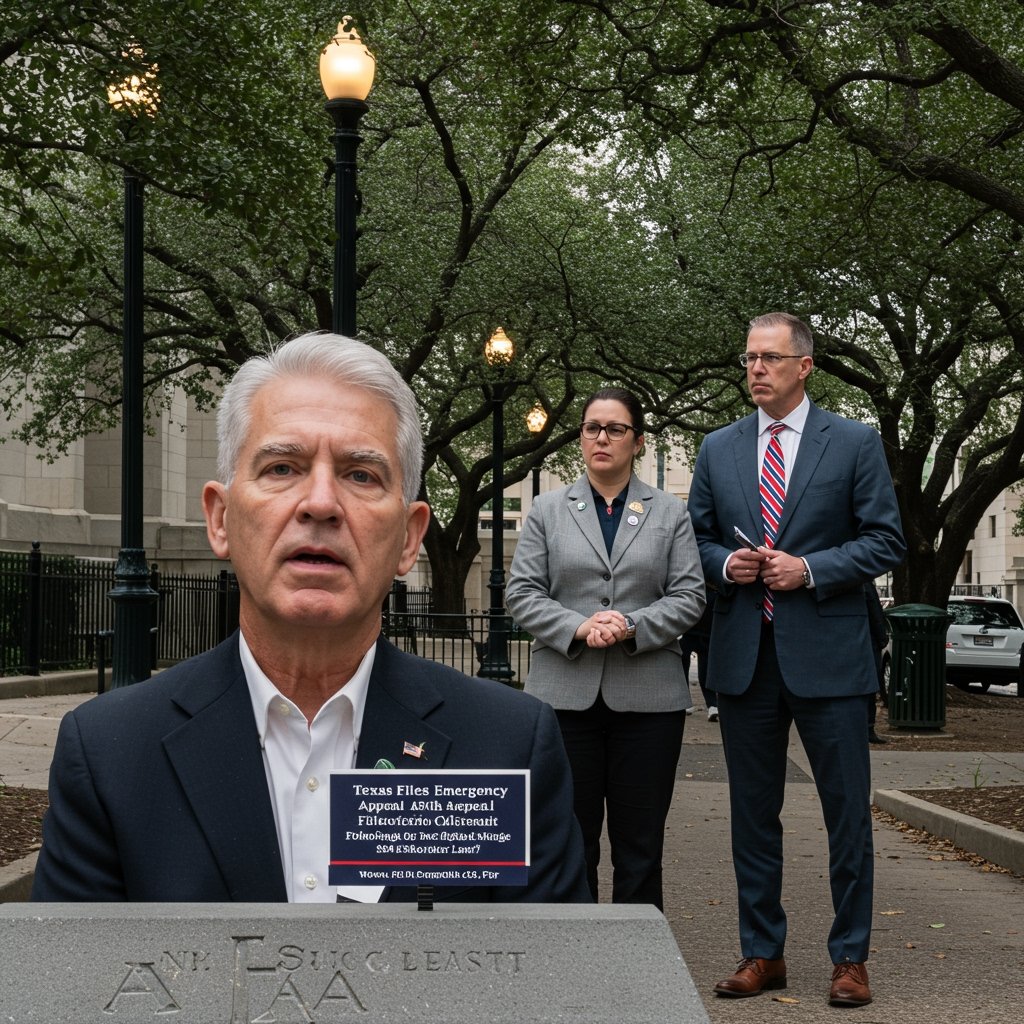Texas Escalates Border Fight with Urgent Appeal
The State of Texas has launched a swift and significant legal countermeasure in its ongoing battle over immigration enforcement. Just hours after a federal judge temporarily blocked its controversial border security law, Senate Bill 4 (SB4), Texas filed an emergency appeal with the U.S. Fifth Circuit Court of Appeals. This move underscores the state’s determination to implement the legislation and brings the intense legal conflict between Texas and the Biden administration to a critical appellate stage.
Attorney General Ken Paxton’s office formally submitted the state’s appeal on Friday, February 21. The filing came rapidly following the decision earlier the same day by U.S. District Judge David Ezra in Austin, who granted a preliminary injunction sought by opponents of SB4, including the U.S. Department of Justice and civil rights groups.
The Controversial Senate Bill 4
At the heart of the dispute is Senate Bill 4, a multifaceted piece of legislation passed by the Texas Legislature. SB4 aims to grant Texas state and local law enforcement personnel unprecedented authority to arrest and detain individuals suspected of crossing the Texas-Mexico border unlawfully. Furthermore, the bill includes provisions allowing state judges to order the return of such individuals to Mexico, a power traditionally reserved exclusively for the federal government.
Proponents of SB4 argue the law is a necessary response to what they characterize as a failure by the federal government to secure the border, leading to an overwhelming influx of migrants into Texas communities. They contend the state has a constitutional right to defend itself against what they deem an “invasion.”
Opponents, however, argue that SB4 is unconstitutional, asserting that it infringes upon the federal government’s exclusive authority over immigration matters and foreign relations. They also raise concerns about potential civil rights violations, racial profiling, and the practical complexities of state-level enforcement interfering with federal immigration processes.
Judge Ezra’s Injunction and Reasoning
U.S. District Judge David Ezra’s ruling on Friday, February 21, temporarily halted SB4 from going into effect while legal challenges proceed. In his detailed order issued from Austin, Judge Ezra concluded that the plaintiffs, including the U.S. Department of Justice, were likely to succeed on the merits of their claim that SB4 is unconstitutional. His reasoning largely centered on the principle of federal preemption, derived from the Supremacy Clause of the U.S. Constitution.
Judge Ezra’s analysis pointed to the extensive and complex framework of existing federal immigration laws, which he found demonstrates Congress’s clear intent to occupy the field of immigration enforcement. He reasoned that allowing Texas to implement its own, potentially conflicting, enforcement mechanisms would disrupt this federal scheme and interfere with national foreign policy interests, which are the sole purview of the federal government. The judge also highlighted concerns that SB4 could lead to inconsistent and chaotic outcomes, potentially straining diplomatic relations with Mexico and creating conflicts with international obligations.
The injunction prevents Texas officials from enforcing key provisions of SB4 across the state, including the state-level criminal penalties for unlawful entry or re-entry and the state judicial orders of removal.
Texas’s Immediate Appeal and Core Arguments
The State of Texas wasted no time in challenging Judge Ezra’s decision. Hours after the injunction was issued, Attorney General Ken Paxton’s office filed an emergency motion with the Fifth Circuit Court of Appeals, seeking to stay (put on hold) the injunction pending a full appeal of the district court’s ruling.
Texas’s legal team argues that Judge Ezra misapplied the law in his ruling. They reiterate the state’s position that it possesses inherent sovereign and constitutional authority to protect its borders, particularly in the face of what it considers a border security crisis left unaddressed by federal authorities. The appeal likely revives arguments Texas has made throughout the legal battle, emphasizing the state’s right to self-defense under both the U.S. and Texas Constitutions.
The state is asking the Fifth Circuit to allow SB4 to take effect while the appellate court considers the case on its merits, arguing that the injunction causes irreparable harm by preventing Texas from addressing the ongoing situation at its border.
The Fifth Circuit and the Path Forward
The Fifth Circuit Court of Appeals, known for its conservative composition, is now the immediate battleground for the future of SB4. The court will first consider Texas’s emergency request to lift the injunction. Given the urgency of the matter and the high stakes involved, a ruling on this request is expected relatively swiftly.
Should the Fifth Circuit grant the stay, SB4 could potentially go into effect while the full appeal process unfolds. Conversely, if the Fifth Circuit denies the stay, the injunction would remain in place, keeping SB4 on hold as the case proceeds through the appellate system.
Regardless of the Fifth Circuit’s initial decision on the stay, the underlying legal challenge to SB4’s constitutionality will continue. The case could eventually make its way to the U.S. Supreme Court, which may ultimately have the final say on the extent of a state’s authority in immigration enforcement matters currently dominated by federal law.
This emergency appeal marks a significant escalation in the profound legal and political clash between Texas and the Biden administration over immigration policy, with the Fifth Circuit’s decision on the injunction being the critical next step watched closely by proponents and opponents of SB4 alike.






